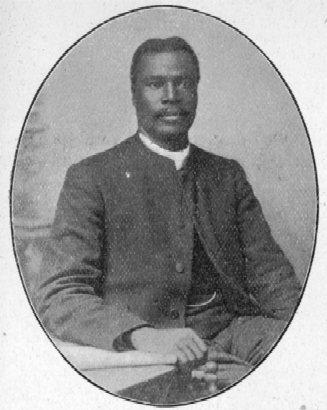Braide, Garrick Sokari
ca. 1882–1918
Nigerian religious leader
Garrick Sokari Braide, a Nigerian missionary and prophet, was largely responsible for the spread of Christianity in the Niger Delta region of Africa in the early 1900s. His preaching and methods combined traditional African elements with Christianity and stressed prayer and faith healing.
Braide was born in the village of Obonoma, the center of a cult to a god called Ogu. Some accounts of Braide's life say that he practiced Ogunism as a youth. After becoming a Christian, Braide campaigned against the use of African religion symbols. But elements of Ogunism remained in his practice of Christianity.

In the late 1880s Braide probably attended the open-air Christian meetings that took place in his village. He became involved with the Anglican Church and took instruction in Christianity for many years. He completed his studies and was baptized at the age of 28.
Braide went on to become a preacher and missionary and a prominent leader in the Niger Delta Pastorate Church. He was known for his gifts of prayer, prophecy, and healing. His reputation for performing miracles and magic, such as causing rain and storms, gained him wide recognition.
Braide preached against the use of alcohol, because drunkenness was a problem in the Niger Delta villages. His anti-alcohol movement caused conflicts with the British, who ruled Nigeria at the time and profited greatly from the sale of alcohol in their colonies. Uneasy about Braide's emergence as a public figure with a large following, the British arrested him in 1916 for sedition. Braide was found guilty and jailed, but he was released several months before his death.
Braide left Africa with two legacies—the first was the spread of Christianity in Nigeria. The number of baptized Christians in the Niger Delta increased by almost 11,000 during the years he was preaching. Second, Braide showed Nigerians that they had the potential to become independent. As a leader who took a position against the colonial government and broke with the traditional church, he demonstrated that Africans could rise up and take control. (See also Christianity in Africa, Religion and Ritual.)